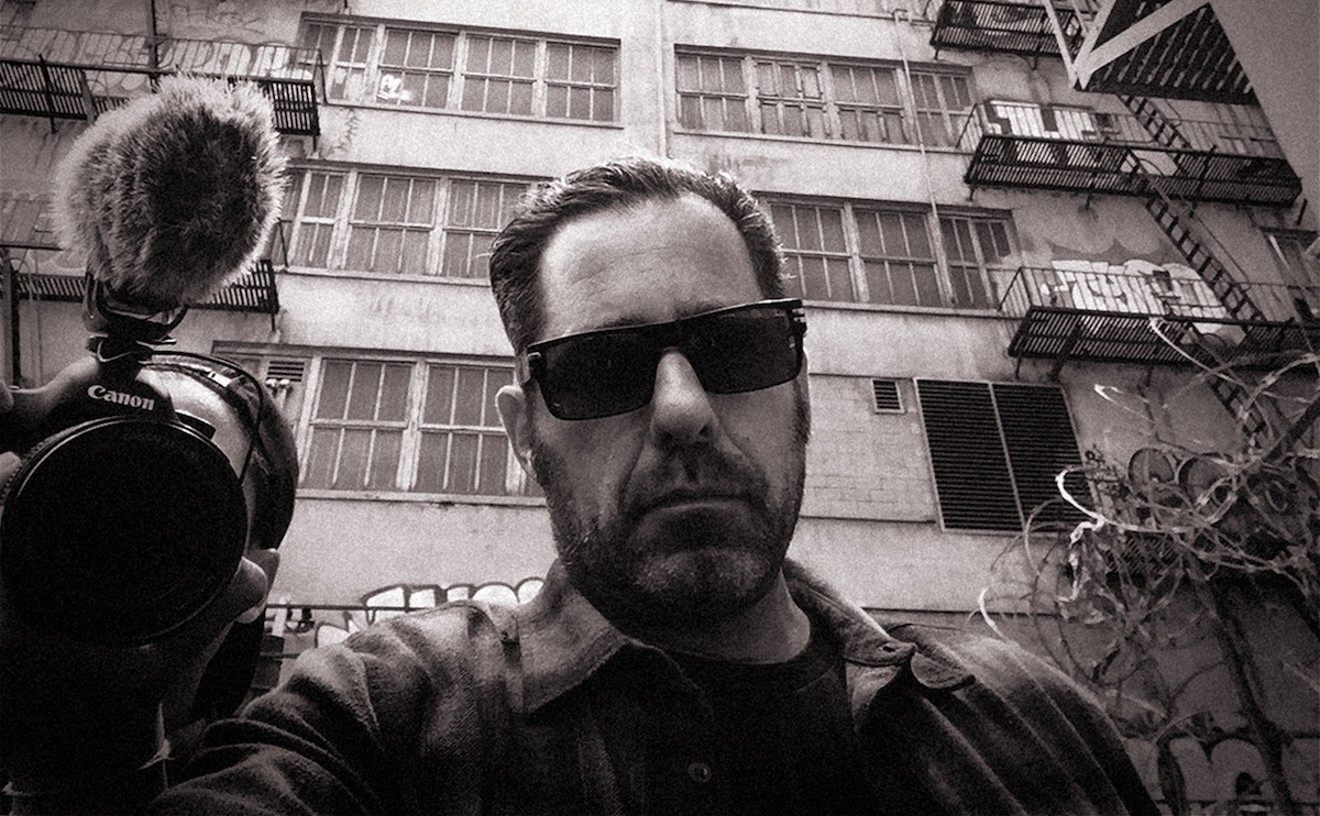By many accounts, Troy Maxson, the 53-year-old protagonist of August Wilson's Fences, is a loser. He's the bitter breadwinner of a small Pittsburgh family who lives in the thwarted pipe dreams of his past as a once-promising baseball player. And he operates with such blinding resentment — brought on, in no particular order, by himself, his criminal record, the white man, the establishment — that he can't see the areas in life that work: a loving wife, two bright sons, a roof over his head, a job in waste management that, though not exactly fielding for the Pirates, includes opportunities for advancement. So he sabotages every good thing he has going, making for an indelible theater archetype of a self-fulfilling loser staring down devils only he can see.
Set in the 1950s as part of the playwright's ten-volume "Pittsburgh Cycle," which charts the African-American experience, Fences is a tremendous play. Though more optimistic and less impactful than Wilson's King Hedley II, it's a superb introduction to his work, a two-and-a-half-hour distillation of the playwright's worldview, where personal responsibility and predestiny compose a measured narrative that unfurls like a novel. The 1987 Pulitzer Prize-winning Fences is receiving a revival from the always-solid, occasionally dazzling African American Performing Arts Community Theatre (which, despite its name, is a professional playhouse).
The play is set in the Maxsons' backyard, which acts as a communal gathering spot for Troy (Larry Robinson) and his extended family. Pieces of an unfinished fence, a Saturday project ignored every Saturday, sit on cinder blocks at stage right, a constant reminder of everything in Troy's life that is unfulfilled.
He lives with his wife, Rose (Carolyn Johnson), and teenage son, Cory (Roderick Randle), and speaks daily with his best friend and co-worker, Jim Bono (Andre' L. Gainey). Troy receives occasional visits from Lyons (Darryl Vaughn), his son from a previous marriage who is now a struggling musician, and his brother Gabriel (Charles Bonamy), a dim, shell-shocked war veteran whose government benefits funded Troy's house — a fact that occasionally surfaces in Troy's guilty conscious. The drama switches between Troy's dictatorial handling of Cory — trying to prevent his son from joining his school football team instead of searching for a steady job — and an apparent affair he has been having with an unseen character, Alberta, which threatens to torpedo his marriage.
Robinson has the most difficult role — his character, Troy, has the most lines, the most movement, and the most complexity. He needs a little more polish. From the opening scene, his strenuous efforts pour down from his shaved head in glistening beads of sweat — the toil of his craft and of Troy's hardscrabble job. He is animated and gripping when recounting Troy's exhausting monologues about wrestling with Death or cutting deals with white devils.
But it would have been good to see Robinson and director Terry Harrell Jr. punch up the confrontations a bit more. The director and star choose a gradual approach to Troy's unraveling, which results in some underplaying at the climax of Act I and later in Act II; even when the dialogue suggests Troy is off the rails, Robinson remains low-key, perturbed but chugging along. A little more emphasis would go a long way.
Luckily, Carolyn Johnson has enough intensity and verisimilitude for both of them. Her work here is never less than marvelous — fully formed and rich in gesture, as convincing as a long-suffering but loving wife as she is a jilted, unforgiving victim. While Robinson sometimes seems as if he's laboring to get through all of those thickets of dialogue, Johnson's contributions are effortless, every line erupting with spontaneity. She has a subtle command of both her husband and the stage that is mesmerizing to watch, and she's the best reason to see this production.
The supporting players turn in fine, unassuming performances, with the genial Gainey helping to bring the larger-than-life Robinson down to earth and Vaughn capturing Lyons' big-city smoothness; he inhabits a cultured apple that has fallen far from the tree.
As Cory, the rail-thin Randle isn't the ideal casting for a star high school footballer; he doesn't have the carriage or musculature of a rough-and-tumble athlete. Physicality aside, his performance channels the right cocktail of contempt, bravado, and fear when he confronts his father's drunken demands.
And finally, as the mentally deficient, emotionally crippled Gabriel, Bonamy plays only one note — cheerful oblivion — until the end of the play, when he emits a long-repressed howl of suffering. His performance might be a little too stiff even considering his character's awkward capacity, but it's nice work in a role that isn't the play's most coveted. At one point, the director has him sitting in the background while swatting at imaginary flies, engendering our sympathy and drawing our attention.
The show doesn't have a costume director, but the attire and props feel authentic, from Troy and Bono's matching name-tagged work shirts and tan boots to their paint-spattered metal lunchboxes. Dudley Pinter built the appropriately shabby but stable back porch using wood that's seen better days, along with fences on both sides and a makeshift ball of string dangling from a tree that characters whack with a baseball bat.
That bat acts as a potential weapon wielded by two of the play's characters and as a reminder of Troy's failed past in professional sports. For Troy, everything reverts to baseball, his escape from reality. "Death is just a fastball on the outside corner," he says, suggesting his ease in hitting Death's presence out of the park.
Immortality, though, is just another losing battle.










